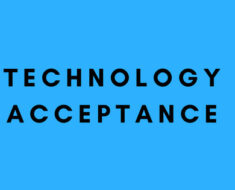The Defense Department’s plans for enterprise cloud computing have been beset with questions of fair competition from the start. And now that the DoD has moved to a multi-vendor approach to replace its JEDI contract, the biggest question is whether it will allow all four pre-selected companies to work within the new Joint Warfare Cloud Capability (JWCC). will allow them to compete freely. , Ecosystem.
In a sense, the answer is yes. This is not the kind of competition that most government procurement professionals would recognize, especially since it has never been done before.
In an exclusive interview with Federal News Network, Danielle Metz, the DoD’s deputy chief information officer for information enterprises, outlined the department’s thinking about how the new structure would work in practice.
Under the JWCC, the DoD will distribute several billions of dollars in cloud spending through small rewards, which it will issue as job orders. But the companies competing for that work will never actually bid for every single piece of the DoD’s enterprise cloud. Instead, a computer system and a centralized programming office would be responsible for deciding which company is best suited for each part of the JWCC, and would issue orders accordingly.
In an apparent nod to JEDI’s Star Wars theme, the system is called AT-AT (short for Account Tracking and Automation Tool in this case). Located in the Defense Information Systems Agency’s Hosting and Compute Center, it aims to track each JWCC contractor’s service offerings and prices and use that information to help the DoD’s Cloud Computing Program Office decide whether Which seller? A specific task should be given.
Metz said the department chose the approach primarily as a way to speed up the cloud acquisition process.
“Normally, such a task sequence takes 30 to 45 days. This is unsatisfactory and we are working very constructively within the limits of [federal takeover regulation] to reduce it to five to 10 days,” she said. “It’s very revolutionary and I think it reflects the commitment of the department in terms of our willingness to transform our business processes so that we can get our battle fighters to effective capabilities faster.”
The structure of the JWCC is also unusual in that the DoD opted to create separate permanent/indefinite quantity contracts, with each supplier being the sole contractor. The more traditional ID/IQ structure—and usually required by federal procurement law—is one where each supplier has a seat on a multi-price ID/IQ contract and then responds to government requirements by submitting quotes for individual products. gives.
The structure appears to limit opportunities for protests. Current law allows protests against large job orders, but that framework primarily considers cases where multiple companies share the same ID/IQ contract and then compete for job orders under the same contract. Huh.
The DoD has yet to say what legal exceptions it plans to use to justify separate single-source, single-award ID/IQ to JWCC contract holders. It is very likely that Amazon, Microsoft, Oracle and Google will each receive such an award; The department made targeted requests to those companies last month, after determining that they were all capable of meeting their needs under the JWCC, but those requests are no solid guarantee that each company will actually receive its ID/IQ. Will be
JWCC differs from JEDI in one other important way: The department has no immediate plans to force military services to use contract for their cloud needs.
During the last three years of bidding protests, which have thrown the JEDI contract into legal uncertainty, the Army, Navy and Air Force have developed their own business approaches to contracting cloud computing. And the Pentagon sees no immediate reason to interfere with the cloud acquisition approach they’ve chosen.
“That body of work and the lessons they’ve learned from it, the cloud conversations and flows that come from those existing contracts, will all continue and then merge into JWCC,” Metz said. “But only if the Services believe that the JWCC meets their requirements. We do not oblige JWCC. It is actually for the first fighter commandos and defense agencies.”
The initial focus on the DoD’s “fourth asset” is largely because department leaders see those organizations as having the greatest unmet need for cloud services, Metz said.
“What combatants are short of orders is cloud infrastructure and related services as well as ubiquitous access to [defense agencies]. So we focus on those first and then open the doors to services if their needs are not met,” She said. “Maybe they don’t have a strategic edge or … [secret level] or top-secret cloud services – they can use JWCC.”





